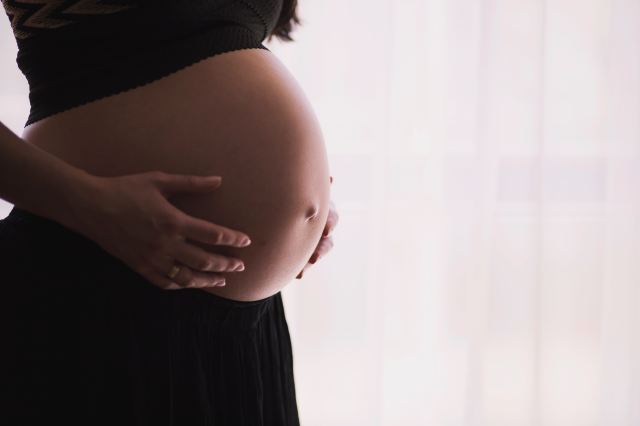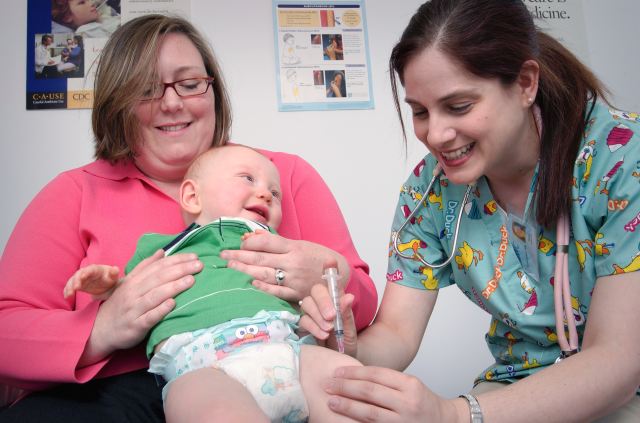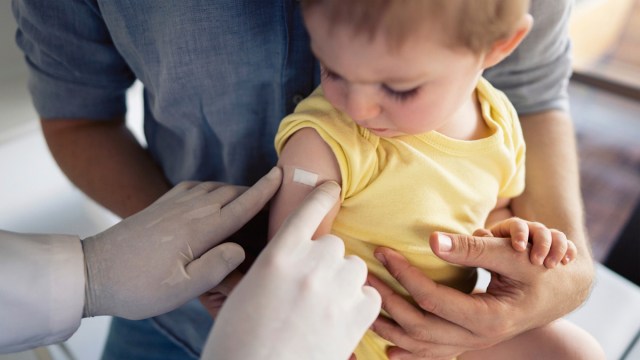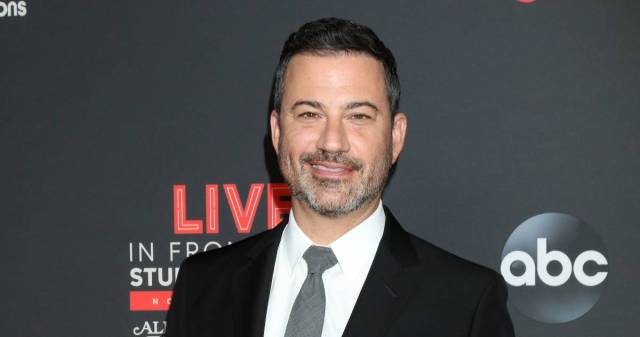You’ve got a lot of things to worry about as a parent, but RSV shouldn’t be one of them—at least not anymore
On Sept. 22, the CDC recommended the first vaccine for pregnant people to protect their newborns from contracting RSV, a common respiratory virus that presents as a pesky cold for most people but can be dangerous for young babies. It also approved a new RSV treatment that can be given directly to infants to protect them during their first year if their parent didn’t receive the vaccination during pregnancy. This comes as a relief to concerned parents who lived through last year’s particularly rough RSV season.
But are these protective measures safe? Are the shots covered by insurance? And should you get them? Read on to find out what you need to know about the newly approved RSV vaccine for pregnant women and the related antibody treatment for babies.

What is RSV and why do we need a vaccine?
RSV, or respiratory syncytial virus, is a common respiratory virus that generally starts circulating in the fall and peaks in the winter. For most people, it causes mild cold-like symptoms, but it can be serious for babies, immunocompromised people, and adults over 60.
The virus is so common that nearly all children are infected with it by the time they turn 2, with most cases causing a fever, runny nose, and cough. But for some babies in their first year, the illness can progress to pneumonia and respiratory distress, with an estimated 58,000 to 80,000 U.S. children under age 5—most of them infants under 6 months—hospitalized with RSV each year.
“Regular, healthy babies can get very sick with this virus,” said Ashlesha Kaushik, a pediatric infectious disease specialist and spokesperson for the American Academy of Pediatrics (AAP). “This is more than a simple common cold virus; it can lead to big problems. Little babies can get very sick.”
According to the AAP, as many as 300 children under 5 die from RSV in the United States each year. Globally, it is the second leading cause of death, behind malaria, during the first year of a child’s life.
Until now, there has been no way to prevent babies from getting the disease (besides isolating them from siblings, family members, and the public), which is why Kaushik calls the vaccine a “breakthrough.”
“For years, the research has been going in this direction,” Kaushik said. “Finally, we can prevent these babies from getting to the hospital.”

How is the RSV vaccine administered?
The new RSV vaccine, called Abrysvo and manufactured by Pfizer, is recommended for women who are 32 weeks to 36 weeks pregnant from September to January. This is so it can protect babies born during peak RSV season.
The shot, given as a one-dose injection, prompts the immune system to make its own RSV-fighting antibodies, which then pass to the baby via the placenta. This lifesaving protection lasts in babies’ immune systems from birth to about six months.
Abrysvo is the same drug that was approved in May for preventing RSV in adults over 60 who are at risk for severe RSV disease. Older adults also have the option of getting the Arexvy vaccine, a similar product made by GlaxoSmithKline, but this has not yet been recommended for use in pregnancy.
Is the Abrysvo vaccine safe?
Experts say yes. Similar to the flu or COVID vaccine, the most commonly reported side effects of Abrysvo were pain at the injection site, headache, muscle pain, and nausea.
Kaushik said there is an “extremely small risk” of preterm birth from the vaccine, but that this risk can be mitigated by getting the injection after the 32nd week of pregnancy (as recommended). And while even the teeniest risk is enough to fray a parent’s nerves, Kaushik said the benefits of protecting yourself and your baby from RSV are worth the risk.
“If you have this protection available, just go ahead and do it,” she said. “Last season I saw how many admissions we had and it was crazy. The hospitals were full. We were in the RSV surge right after the COVID surge.”

Can babies get the RSV vaccine?
The maternal vaccine isn’t the only new tool to prevent RSV in babies. The CDC also recommended a treatment for newborns that can reduce the risk of severe RSV by about 75 percent. The treatment, called Nirsevimab (the brand name is Beyfortus), is produced by Sanofi and AstraZeneca and is meant to be given in the first eight months of life to protect babies when they’re most vulnerable.
To be clear, Nirsevimab isn’t a vaccine. Rather, it is called a “monoclonal antibody treatment,” which means the injection delivers antibodies directly to the immune system. Where a vaccine stimulates the immune system to provide protection in the future, monoclonal antibodies provide immediate and short-term protection. Still, according to the CDC, a Nirsevimab shot provides protection similar to that of a vaccine.
“This is another new tool we can use this fall and winter to help protect lives,” Dr. Mandy Cohen, CDC Director, said in a press release. “I encourage parents to talk to their doctors about how to protect their little ones against serious RSV illness, using either a vaccine given during pregnancy or an RSV immunization given to your baby after birth.”
The CDC recommends Nirsevimab for:
- All infants younger than 8 months of age who are born during RSV season or entering their first RSV season (October through March).
- Children aged 8 through 19 months who are at increased risk for severe RSV disease and entering their second RSV season (including children with cystic fibrosis or other lung diseases).
Note: Babies only need one layer of protection—either immunity via the maternal vaccine, or through the antibodies in Nirsevimab. They don’t need both.
Is Nirsevimab safe for babies?
The treatment was found to be safe and effective following three clinical trials. When compared to a placebo, the medication reduced the risk of contracting RSV by 70% in the first trial with 1,453 preterm infants. The second trial with 1,490 babies born at 35 weeks or more found the risk of severe infection reduced by 75%. The last trial looked at kids in their second RSV season who hadn’t contracted the virus and found that it provided added protection for babies with congenital heart disease or chronic lung disease.
A few side effects were noted: rash and injection site reactions. As with other IgG1 monoclonal antibodies, there is also a risk of serious hypersensitivity reactions like anaphylaxis, so parents should consult their pediatricians to ensure that their babies don’t have existing allergies to any of the ingredients in Nirsevimab. Parents should also be cautious if their children have significant bleeding disorders.
Are the shots covered by insurance?
The amount you have to pay will depend on your insurance company, though most private insurers will cover the cost of either the vaccine or the antibody treatment since both were recommended by the CDC (if paying out of pocket, the vaccine can cost up to $295 and Nirsevimab can surpass $1,000). However, it may take a bit of time for insurance companies to get the immunizations on their list of covered vaccines, so it’s best to check with your insurance company beforehand.
In addition, people who are covered by the national Vaccines for Children program—a federally funded program that provides free vaccines to kids who may otherwise go unvaccinated because of financial hardship—should receive either the vaccine or the antibody treatment at no cost.
When will Abrysvo and Nirsevimab be available?
The maternal (Abrysvo) vaccine is already available at many pharmacies nationwide, with distribution set to become more robust as we charge into the RSV season. As for Nirsevimab, the AAP said the rollout should begin in early October.
Can you get the RSV vaccine alongside COVID and flu shots?
Kausik said it is safe to get all three vaccines during the same visit. And Dr. Jeffrey Duchin, a member of the board of directors for the Infectious Diseases Society of America, echoed her sentiment.
“If it’s now or never again, it’s best to get all the vaccines you’re eligible for to get the protection against as many diseases as possible,” Duchin told Reuters. “If you’ve got the luxury of returning for more than one visit, you can choose to space them out.”
Learn more:
For more information about the Abrysvo vaccine: Acog.org
For more information about the Nirsevimab monoclonal antibody treatment: CDC.gov
To learn more about RSV: AAP.org











